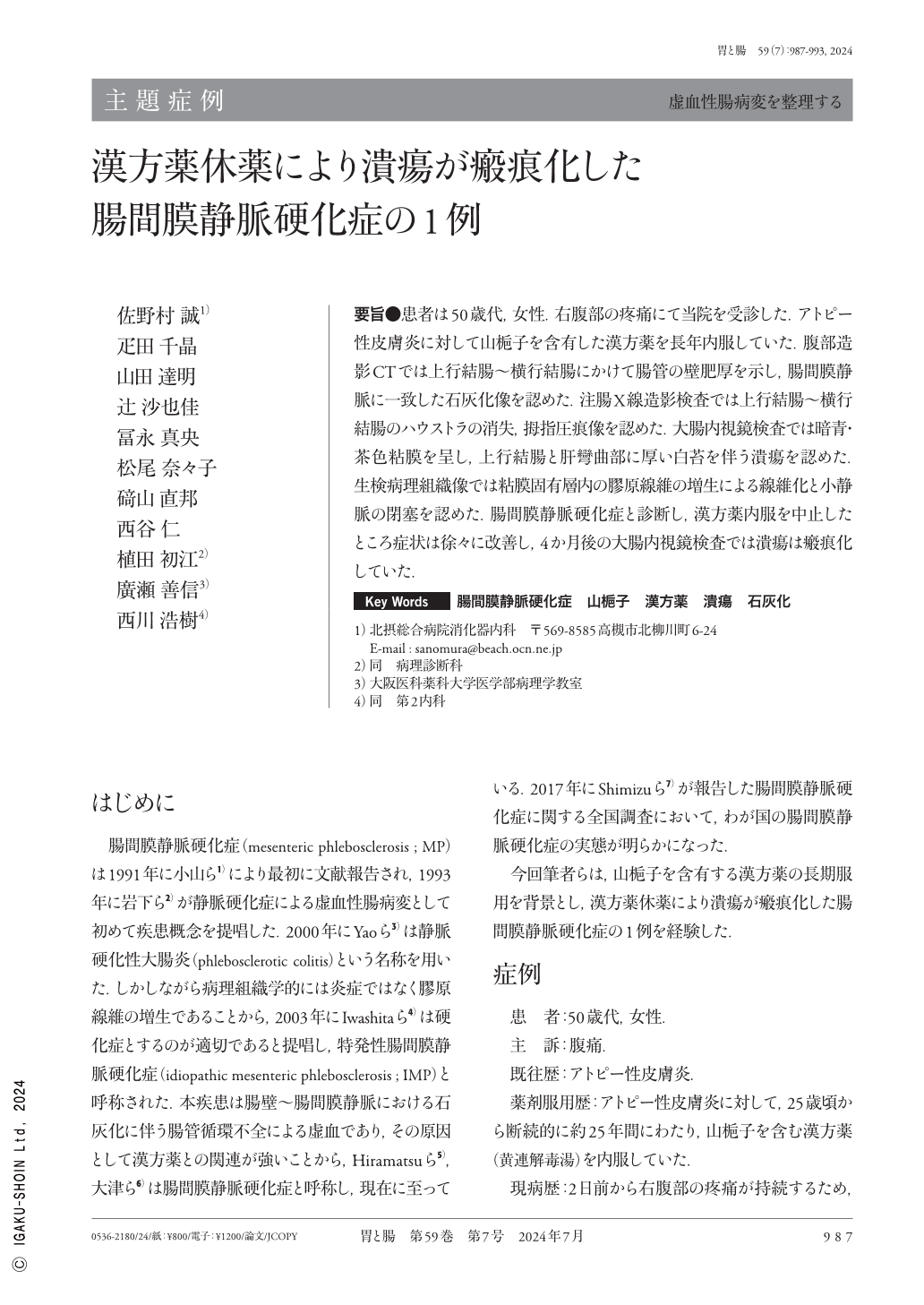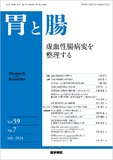Japanese
English
- 有料閲覧
- Abstract 文献概要
- 1ページ目 Look Inside
- 参考文献 Reference
要旨●患者は50歳代,女性.右腹部の疼痛にて当院を受診した.アトピー性皮膚炎に対して山梔子を含有した漢方薬を長年内服していた.腹部造影CTでは上行結腸〜横行結腸にかけて腸管の壁肥厚を示し,腸間膜静脈に一致した石灰化像を認めた.注腸X線造影検査では上行結腸〜横行結腸のハウストラの消失,拇指圧痕像を認めた.大腸内視鏡検査では暗青・茶色粘膜を呈し,上行結腸と肝彎曲部に厚い白苔を伴う潰瘍を認めた.生検病理組織像では粘膜固有層内の膠原線維の増生による線維化と小静脈の閉塞を認めた.腸間膜静脈硬化症と診断し,漢方薬内服を中止したところ症状は徐々に改善し,4か月後の大腸内視鏡検査では潰瘍は瘢痕化していた.
A woman in her 50s presented to our hospital with a chief complaint of right abdominal pain ; the patient had been regularly using Chinese herbal medicine(including Sanshishi ingredient)for many years prior. Abdominal CT scan revealed intestinal wall thickening extending from the ascending colon to the transverse colon, with calcification consistent with the mesenteric vein. Barium enema revealed a loss of haustra saccules in the ascending to transverse colon and thumbprint images. Colonoscopy indicated dark blue/brown-colored mucosa and ulceration in the ascending colon and hepatic flexure. Pathological examination demonstrated perivascular collagenous fiber proliferation and venous stenosis in the lamina propria. Based on imaging findings and prescription history, a diagnosis of mesenteric phlebosclerosis was made. The patient was taken off of Chinese herbal medicine therapy. The patient's symptoms improved, and colonoscopy conducted 4 months later showed that the ulcer had converted to scar tissue.

Copyright © 2024, Igaku-Shoin Ltd. All rights reserved.


